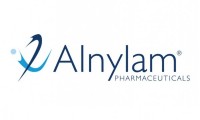-
Alnylam Presents Promising Results for RNAi Therapeutic in Alzheimer’s Disease at AAIC
- Source: drugdu
- 117
- July 20, 2023
-
Black Patients with ICDs Have Higher Rate of Post-Implant Cardiac Events and Risk of Death
- Source: drugdu
- 125
- July 19, 2023
-
Portable, Low-Cost Tech Tracks Uterine Contractions
- Source: drugdu
- 99
- July 19, 2023
-
Urotronic Wins FDA Approval to challenge Boston Scientific, Teleflex for Prostate Market
- Source: drugdu
- 118
- July 15, 2023
-
Can CorWave Fill Medtronic’s Shoes in the LVAD Market?
- Source: drugdu
- 97
- July 15, 2023
-
NVIDIA Doubles Down on AI Drug Discovery with $50M Recursion Investment
- Source: drugdu
- 122
- July 14, 2023
-
BeiGene Signs $1.3bn Deal with DualityBio for Investigational Solid Tumour ADC
- Source: drugdu
- 123
- July 14, 2023
-
Anti-inflammatory Drugs Do Not Lead to a Swifter Hospital Exit
- Source: drugdu
- 132
- July 13, 2023
-
UAE, Saudi Arabia Serve as Gateway to International Markets for Biopharma
- Source: drugdu
- 147
- July 13, 2023
-
CMS Expands Medicare Coverage for Leqembi After FDA Traditional Approval
- Source: drugdu
- 128
- July 11, 2023
your submission has already been received.
OK
Subscribe
Please enter a valid Email address!
Submit
The most relevant industry news & insight will be sent to you every two weeks.













